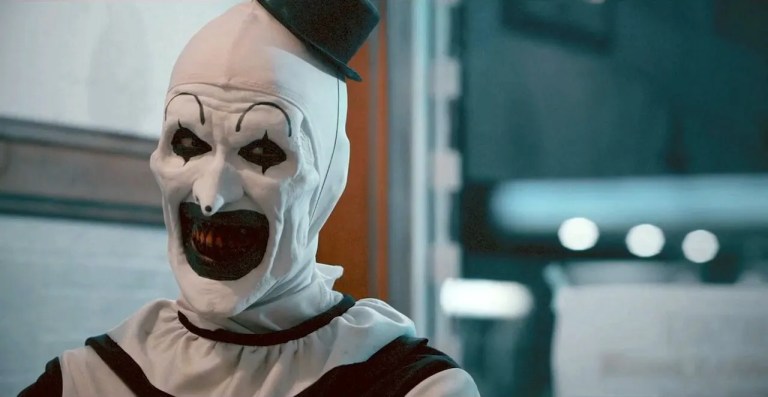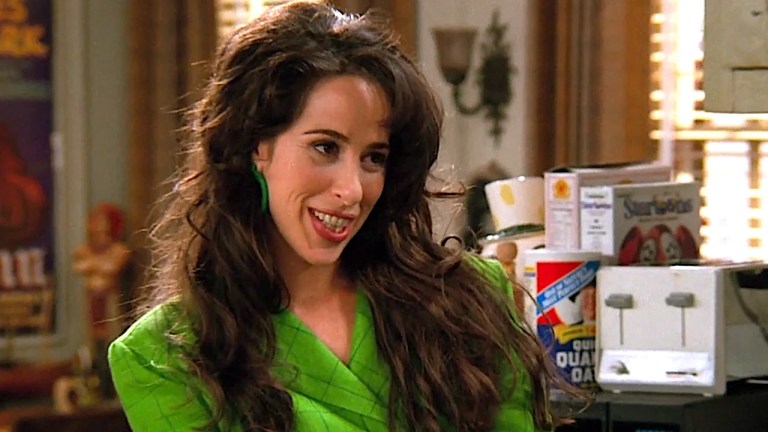
Breaking Your ‘Upper Limit’: 12 Ways People Hold Themselves Back From Real Happiness
Happiness is not a rush of positive emotion elicited by random events that affirm the way you think something should go. Not sustainable happiness, anyway.

Most people don’t want to be happy, which is why they aren’t.
People are programmed to achieve their foremost desire at almost any cost (imagine the adrenaline-fueled superhuman powers people develop in life-or-death emergencies.) It’s just a matter of what that foremost desire is.
People don’t want to be happy because they think it means giving up on achieving more. More people don’t want to believe it’s a choice because that puts responsibility in their hands. It’s the same reason people self-pity: to delay action, to make an outcry to the universe, as though the more they state how bad things are, the more likely it is that someone else will change them.
Happiness is not a rush of positive emotion elicited by random events that affirm the way you think something should go. Not sustainable happiness, anyway. The real stuff is the product of an intentional, mindful, daily practice, and it begins with choosing to commit to it.
Everybody has a happiness tolerance – an upper limit – as Gay Hendricks coins it. It is the capacity for which we allow ourselves to feel good. Other psychologists call it the “baseline,” the amount of happiness we “naturally” feel, and eventually revert back to, even if certain events or circumstances shift us temporarily.
The reason we don’t allow those shifts to become baselines is because of the upper limit – as soon as our circumstances extend beyond the amount of happiness we’re accustomed, and comfortable, feeling, we unconsciously begin to self-sabotage.
We are programmed to seek what we’ve known. So even though we think we’re after happiness, we’re actually trying to find whatever we’re most accustomed to, and we project that on whatever actually exists, over and over again. These are just a few of many psychological impediments that hold us back from the emotional lives we claim to want. Here are a few others:
Everybody has a limited tolerance for feeling good.
When things go beyond that limit, we sabotage ourselves so we can return to our comfort zones. The tired cliché of stepping outside them serves a crucial purpose: it makes people comfortable with discomfort, which is the gateway to expanding their tolerance for happiness.
There is a “likability limit” that people like to remain under: everybody has a level of ‘success’ that they perceive to be admirable – and un-threatening to others.
Most things people do are in an effort to ‘earn’ love. Many desires, dreams and ambitious are build out of a space of severe lack. It’s for this reason that some of the most emotionally dense people are also the most successful: they use their desire for acceptance, love, wholeness, as fuel – (for better and for worse.)
The point is: once people surpass the point at which they think people will judge and ridicule them for their success (as opposed to praise them for it) they promptly cut themselves off, or at minimum severely downplay/minimize it so as to keep themselves in good standing with those they desire approval from. (It’s ultimately not that people value ego and material over love, but that they think those things will earn them love.)
Most prefer the comfort of what they’ve known to the vulnerability of what they don’t.
… Even when “what they don’t” is, objectively, much better. If we redefine “happiness,” in terms of what human beings innately desire (comfort, inclusiveness, a sense of purpose, etc.) we can then make the choice to seek comfort from things that are ultimately aligned with what we want to achieve.
Many people are afraid that ‘being happy’ = giving up on achieving more.
Happiness is, in an essential form, acceptance. It’s arriving at the end-goal, passing the finish line, letting the wave of accomplishment wash over you. Deciding to be that way every day can make it seem as though the race is already over, so we subconsciously associate ‘happiness’ and acceptance’ with ‘giving up.’ But the opposite is true: the path to a greater life is not ‘suffering until you achieve something’ but letting bits and pieces of joy and gratitude and meaning and purpose gradually build, bit by bit.
People delay action once they know truth – and the interim between knowing and doing is the space where suffering thrives.
Most of the time, it’s not about not knowing what to do (or not knowing who you are). It’s about the resistance between what’s right and what’s easy, what’s best in the long vs. short term. We hear our instincts, we just don’t listen. This is the single most common root of discomfort: the space between knowing and doing. We’re culturally addicted to procrastination, but we’re also just as enamored by deflection. By not acting immediately, we think we’re creating space for the truth to shift, when really, we’re only creating discomfort so that we can sense it more completely (though we’re suffering needlessly in the process.)
People believe that apathy is safety.
We’re all afraid of losing the pieces and people that make up our lives. Some people try to cut ahead of the pain-curve and don’t let themselves feel as though they wanted or liked those things in the first place. The undercurrent here is the sense that everything ends and all its impermanent and while those things are more or less true, there is something just slightly truer, and it is that death gives life meaning. It’s the fact that we can lose what we have that makes it sacred and precious and wonderful. It’s not about what pain you suffer, it’s about what you suffer for. You can choose to cut yourself off from feeling good so as to buffer the sense of loss and suffer from numbness, or you can have an incredible life and have to mourn wildly when it’s over, but at least there was a means to that end.
Few know how to practice feeling good (or why it’s necessary).
It is almost essential to raising your upper limit, augmenting your baseline, and ultimately assimilating to the new chapter(s) of your life without destroying them out of unfamiliarity. Practicing feeling good is simply taking a moment to, literally, let yourself feel. Extend that rush just a few seconds longer, meditate on some things you’re grateful for and let it wash over you as much as possible. Seek what’s positive, and you’ll find that your threshold for feeling it expands as you decide it can.
People think happiness its an emotional response facilitated by a set of circumstances, as opposed to a choice and shift of perception/awareness.
It seems that the people who are steadfast in their belief that circumstances create happiness are not to be swayed – and that makes sense. It’s for the same reason that we buy into it so much: it’s easier. It’s the way to cut-corners on your emotional life. It’s seemingly logical and fairly easy to attain, so why not stand by it fiercely? Because it’s ultimately false. It maintains that you must wait to feel happy, and as we know, unless you are cultivating your baseline to be all-around higher, you’ll spend the rest of your life bopping from one perceived high to another.
Some of the statistically happiest countries in the world are nearly-impoverished, some of the most notable and peaceful individuals to grace the Earth died with only a few cents to their name. The commonality is a sense of purpose, belonging and love: things you can choose to feel and cultivate, regardless of physical/material circumstance.
Most people don’t know that it’s possible to shift their baseline, since it’s always framed in a way of being “how one naturally is.”
If I’ve heard it once I’ve heard it a thousand times: the woman with anxiety who says “it’s just the way I am.” The man with a dozen irrational fears who attributes them to “his personality.” The thing is that nothing has to be an essential part of you unless you decide it is – least of all anxiety and fear. In fact, those things are never essentially part of who someone is, they are learned behaviors. They are ego-reactions that go unchecked. They are flashing lights and waving flags from our innermost selves that something is not right, but we’re avoiding making the shift (mostly by deflecting on the circumstance being out of our control.)
People believe that suffering makes them worthy.
To have wonderful things in our lives without having suffered for them somehow translates to us feeling as though we haven’t truly “earned” them, and therefore, they are not completely ours. On the flip side: the idea that beautiful, joyous things could simply be ours without any conscious creation of them on our part is terrifying, because the opposite could just as well be true.
Many people believe they can beat fear to the finish line.
Worry is the Western cultural past time, and it’s ultimately a deflection from the fact that we buoy between extremes: not caring about anything or caring so much about one thing it could break us altogether.
Worrying conditions us to the worst possible outcomes so they don’t cause as much pain if they come to pass. We’re thinking through every irrational possibility so we can account for it, prepare for it, before it surprises us. We try to imagine every “bad” thing a person could say about us so they’re not the first to do it.
But this does not change anything. You still won’t expect difficult things to arise. You will never know what people are really thinking, or how often. You will not be able to prepare to cope with your irrational fears, because there’s no basis in a reality you could possibly get ready to deal with. You cannot beat fear to the finish line. You are not cheating your way around pain. You’re actively pursuing more and more of it.
Happy people are often perceived as being naive and vulnerable.
If nothing else, happy people are stigmatized as being clueless and ill-informed and delusionally positive and disconnected from reality, but the only people who perceive them that way are people who do everything in their power to justify the negativity in their lives they feel they cannot control. It is people who don’t choose a better life that are naive and truly vulnerable, as “happy people” may lose everything they have, but people who never choose to fully step into their lives never have anything at all. ![]()











